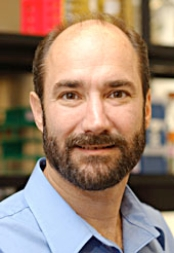Pre-Cancer Atlas: Familial Adenomatous Polyposis

Overview
Multi-omic Characterization of Transformation of Familial Adenomatous Polyposis
We have established a state-of-the-art PreCancer Altas (PCA) for colorectal cancer (CRC) using Familial Adenomatous Polyposis (FAP) as a model system. CRC is one of the leading causes of death in the United States with 140,000 new cases arising each year. Mutations in the adenomatous polyposis coli (APC) gene are thought to be one of the early events in sporadic colorectal cancer. FAP families have inherited mutations in APC, and affected individuals classically develop hundreds of polyps, which often progress to invasive colon cancer by the third decade of life. Due to the extraordinarily high number of polyps that can be obtained from a single individual, FAP is an ideal disease system to study the host factors driving molecular heterogeneity in precancerous lesions. We expect these studies to inform diagnostic, preventative, and therapeutic measures for sporadic CRC. In order to obtain a comprehensive understanding of the early events that lead to and drive CRC, we will construct a PreCancer Atlas of the pre-cancerous polyps, early adenocarcinoma, and nearby normal tissue isolated from FAP patients. To build this atlas and execute this project, we have assembled an expert team of investigators with extensive experience working in large consortia. Together, we have already developed pipelines for multi-omics and imaging characterization, biospecimen collection, and analysis that we have leveraged for FAP samples.
Principal Investigators
Michael Snyder, PhD
 Dr. Michael Snyder is the Stanford Ascherman Professor and Chair of Genetics and the Director of the Center of Genomics and Personalized Medicine. Dr. Snyder received his Ph.D. training at the California Institute of Technology and did his postdoc at Stanford University. He is a leader in the field of functional genomics and proteomics and one of the leaders of ENCODE. His laboratory was the first to perform a large-scale functional genomics project in any organism and has developed many technologies in genomics and proteomics including high-resolution tiling arrays for the entire human genome, methods for global mapping of transcription factor binding sites, paired-end sequencing for mapping of structural variation in eukaryotes, de novo genome sequencing of genomes using high-throughput technologies, and RNA-Seq. These technologies have been used for characterizing genomes, proteomes, and regulatory networks.
Dr. Michael Snyder is the Stanford Ascherman Professor and Chair of Genetics and the Director of the Center of Genomics and Personalized Medicine. Dr. Snyder received his Ph.D. training at the California Institute of Technology and did his postdoc at Stanford University. He is a leader in the field of functional genomics and proteomics and one of the leaders of ENCODE. His laboratory was the first to perform a large-scale functional genomics project in any organism and has developed many technologies in genomics and proteomics including high-resolution tiling arrays for the entire human genome, methods for global mapping of transcription factor binding sites, paired-end sequencing for mapping of structural variation in eukaryotes, de novo genome sequencing of genomes using high-throughput technologies, and RNA-Seq. These technologies have been used for characterizing genomes, proteomes, and regulatory networks.
James Ford, MD
 Dr. James Ford is a medical oncologist and geneticist at Stanford and is devoted to studying the genetic basis of breast and GI cancer development, treatment, and prevention. Dr. Ford graduated from Yale University, where he later received his M.D. He was an internal medicine resident, Clinical Fellow in Medical Oncology, and Research Fellow of Biological Sciences at Stanford, and he joined the faculty in 1998. He is currently Professor of Medicine and Genetics and Director of the Stanford Cancer Genetics Clinic and the Cancer Genomics Program. Dr. Ford’s research goals are to understand the role of genetic changes in cancer genes in the development of cancer. He studies the role of the p53 and BRCA1 tumor suppressor genes in DNA repair and uses high-throughput genomic analyses of cancer to identify molecular signatures for targeted therapies. Dr. Ford’s clinical interests include the diagnosis and treatment of patients with a hereditary predisposition to cancer.
Dr. James Ford is a medical oncologist and geneticist at Stanford and is devoted to studying the genetic basis of breast and GI cancer development, treatment, and prevention. Dr. Ford graduated from Yale University, where he later received his M.D. He was an internal medicine resident, Clinical Fellow in Medical Oncology, and Research Fellow of Biological Sciences at Stanford, and he joined the faculty in 1998. He is currently Professor of Medicine and Genetics and Director of the Stanford Cancer Genetics Clinic and the Cancer Genomics Program. Dr. Ford’s research goals are to understand the role of genetic changes in cancer genes in the development of cancer. He studies the role of the p53 and BRCA1 tumor suppressor genes in DNA repair and uses high-throughput genomic analyses of cancer to identify molecular signatures for targeted therapies. Dr. Ford’s clinical interests include the diagnosis and treatment of patients with a hereditary predisposition to cancer.
Christina Curtis, PhD
 Trained in molecular and computational biology and jointly appointed in Medicine and Genetics, Dr. Christina Curtis pursues systems biology and computational approaches to establish a quantitative and mechanistic understanding of cancer progression. Her research is focused on the development and application of innovative experimental and computational approaches to improve the diagnosis, treatment, and earlier detection of cancer by leveraging genome-scale data derived from clinical samples coupled with computational modeling and iterative experimentation. To this end, Dr. Curtis and her team have developed an integrated experimental and computational framework to measure clinically relevant patient-specific parameters and to measure clonal dynamics during tumor progression and through therapy. This led to their description of a Big Bang model of effectively neutral tumor evolution, thereby advancing a quantitative understanding of tumor progression and refining the de facto clonal evolution model.
Trained in molecular and computational biology and jointly appointed in Medicine and Genetics, Dr. Christina Curtis pursues systems biology and computational approaches to establish a quantitative and mechanistic understanding of cancer progression. Her research is focused on the development and application of innovative experimental and computational approaches to improve the diagnosis, treatment, and earlier detection of cancer by leveraging genome-scale data derived from clinical samples coupled with computational modeling and iterative experimentation. To this end, Dr. Curtis and her team have developed an integrated experimental and computational framework to measure clinically relevant patient-specific parameters and to measure clonal dynamics during tumor progression and through therapy. This led to their description of a Big Bang model of effectively neutral tumor evolution, thereby advancing a quantitative understanding of tumor progression and refining the de facto clonal evolution model.
William Greenleaf, PhD
 Dr. William Greenleaf studies the physical genome both by investigating the relationship between the folding of DNA in the nucleus and gene expression regulation, as well as the relationship between DNA sequence and the structure and function of encoded biomolecules.
Dr. William Greenleaf studies the physical genome both by investigating the relationship between the folding of DNA in the nucleus and gene expression regulation, as well as the relationship between DNA sequence and the structure and function of encoded biomolecules.